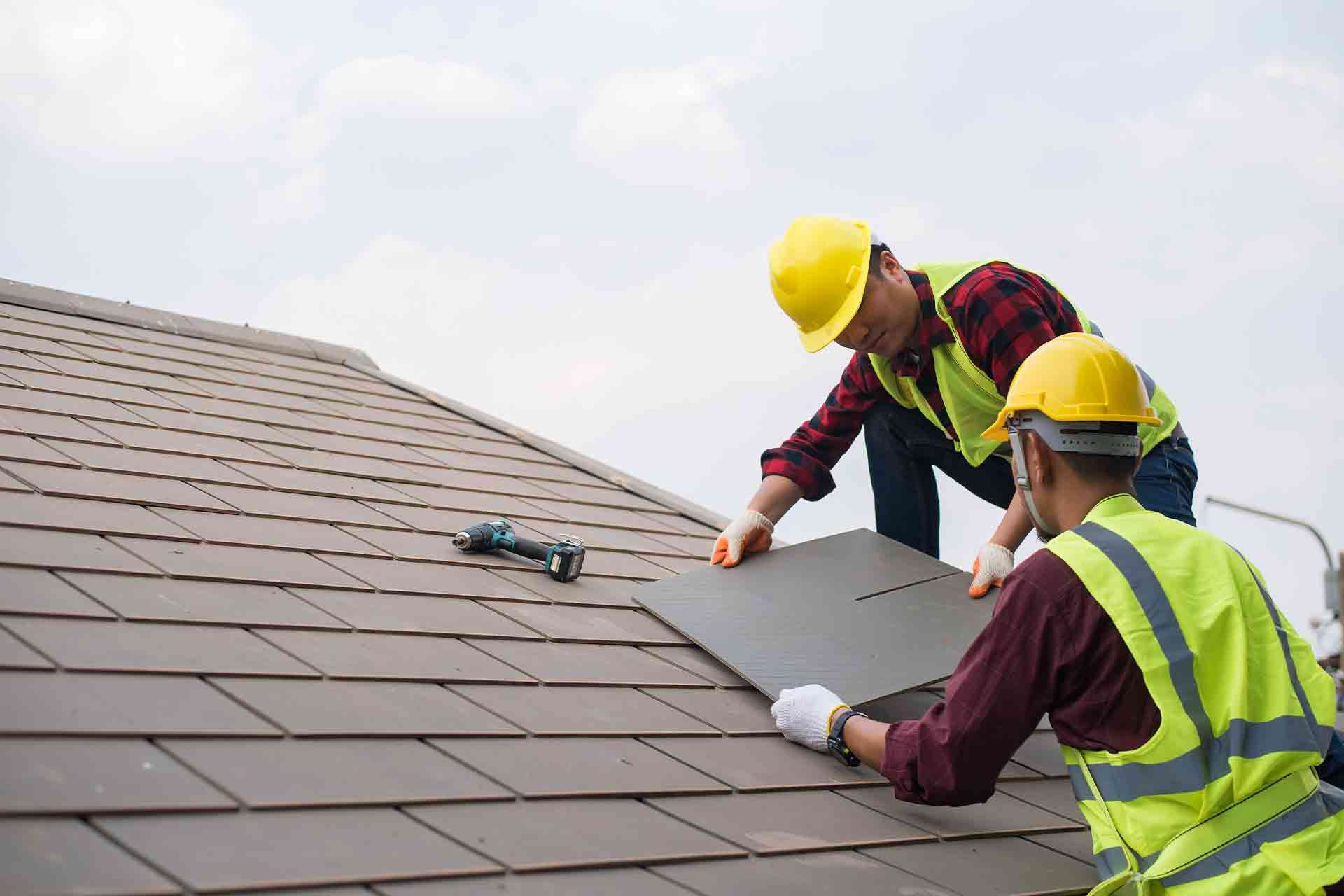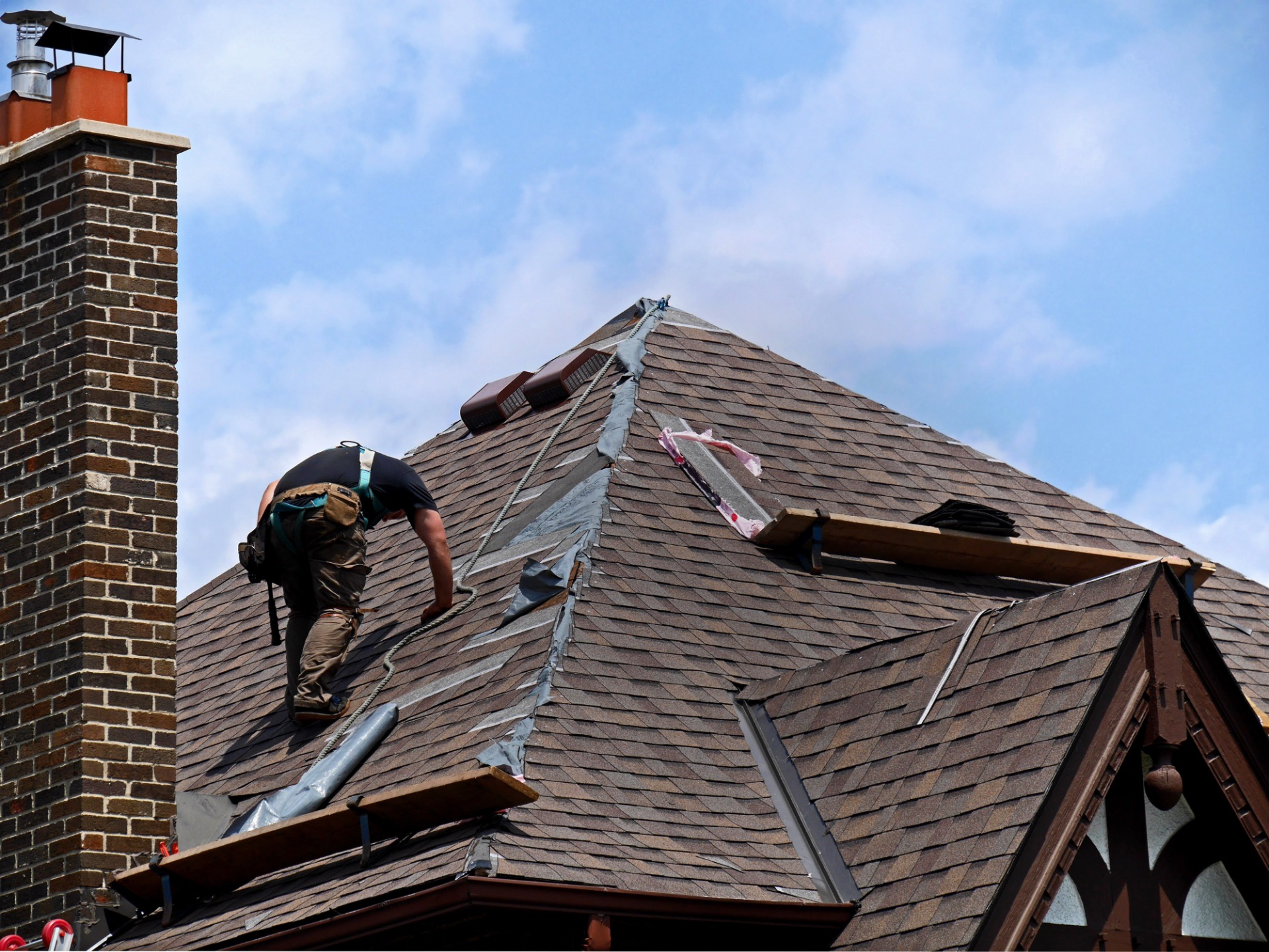Dealing with a bad roofing job can be a stressful and costly experience. However, there are steps you can take to resolve the issue and potentially get compensation. Credit: Checkatrade If you have a bad roofing job, first, try to resolve it directly with the contractor. Explain the issues and give them a chance to inspect and repair any defects. If they refuse, file a complaint and contact your insurance provider about covering damages. As a last resort, seek legal advice about taking the contractor to court over their poor workmanship. Finding a reputable, experienced roofer is crucial to ensure quality work and avoid issues down the line. Check reviews, ask for referrals, and verify licensing. If you do end up with a bad roofing job, act quickly to have the contractor fix it or get compensation for damages. With some diligence upfront, you can avoid the headaches of a leaky roof. If you are unhappy with the quality of work done by a roofing contractor, the first thing to do is review your contract and warranty information. This will outline what work the roofer agreed to perform, what materials they said they would use, and what warranty coverage you have. Check for any clauses about guarantees on workmanship, materials, or leak repairs. See what the process is for filing a claim or complaint. Many warranties require you to contact the roofer first to give them a chance to inspect and fix any issues. If the roofing company used substandard materials, did a shoddy job, or failed to address leaks as promised, then you may have valid grounds for a warranty claim or refund. With the right paperwork and evidence, you can potentially get the contractor to pay for a repair, partial refund, or a replacement roof. But act promptly, as many warranties have strict time limits to submit claims. Credit: SHS Roofing If the roofing company is not addressing your concerns, it’s important to gather evidence to back up your claims. Documenting shoddy or faulty workmanship will strengthen your case if you need to take legal action or file an insurance claim. Take clear photos of any visible problems like loose or missing tiles, uneven surfaces, cracked flashing, or water damage. Get pictures from different angles and in good lighting. Also, take pictures of any labels or markings on the materials used that don’t match what was agreed upon. You can also use videos to show issues like a leaky ceiling or gutter. Get written statements from any witnesses who saw the work done and can confirm issues. For internal water damage, take photos over time to document the progression. Store any damaged personal items as evidence. Get professional assessments done by another roofer or claims adjuster to back up your stance. Compile detailed receipts, your contract, warranty info, and any correspondence with the company. The more thorough your documentation, the better your chances of recouping costs to fix or replace the faulty roof work. If gathering evidence doesn’t prompt the roofing company to address problems, it’s time to make a formal complaint. Put your grievances in writing to the company owner or manager. List the specific issues with the workmanship, referring to any supporting documents or photos. Quote the relevant sections of the contract that have been breached. Demand a response by a set date, and state the actions you expect them to take to remedy the situation, such as fixing defects or compensating you for damages. Send the letter by certified mail and email so there’s proof it was received. Keep a copy for your records too. If you don’t get an adequate response by your deadline, follow up to reiterate that you expect a resolution. State that if they do not fix the problems in a satisfactory manner within a revised timeframe, you will pursue further action. Remaining firm yet composed can show you mean business. If the company still doesn’t budge, you may have to take the next steps of filing a claim or seeking legal counsel. If a formal complaint to the roofing company doesn’t resolve your issues, the next recourse may be filing a claim with a trade association. Roofing contractors in the UK may be members of trade bodies like the National Federation of Roofing Contractors (NFRC). The NFRC offers resolution services to help mediate disputes between its members and customers. Compile documentation showing how the roofing company failed to meet contractual obligations and trade association standards. Submit copies along with a summary of the unresolved issues and timeline of events. The trade association may investigate the claim and work towards a satisfactory outcome, such as the company properly fixing defects. If the roofing contractor isn’t a member of a trade body, you can report them to an organisation like Trustmark or Checkatrade. While they don’t offer formal dispute resolution, they can record complaints which help warn other customers. Trade associations can provide an independent assessment of problems and apply pressure on contractors to resolve issues. Exhausting these options bolsters your case if you ultimately need to pursue legal action. https://www.youtube.com/watch?v=3RbYF1dDshc If other attempts to remedy problems with your roof have failed, your next option may be to pursue legal action against the roofing company. Consult with a solicitor to review the specifics of your case. Provide them with all documentation of the original agreement, correspondence with the company trying to resolve issues, and evidence of any defects or incomplete work. The solicitor can advise if you have grounds to make a claim in county court for breaches of contract. For example, if the roofing work didn’t meet building regulations or contractual promises about materials, workmanship guarantees, or project timelines. They can also assess if it’s feasible to claim damages that cover the cost of correcting any problems, including repairs by another contractor. Additionally, you may be entitled to compensation for related expenses caused by flaws in the original roofing work. Having an experienced solicitor review the details of your situation is prudent before embarking on formal legal action. Their guidance can help strengthen your case and identify the most effective strategies for achieving a satisfactory outcome. Look for red flags like a lack of licensing, poor communication, vague estimates, or negative reviews. A good roofer will be licensed, and insured, provide detailed quotes, respond promptly to questions, and have a portfolio of quality work. Roofers in the UK must comply with building regulations, have public liability insurance, provide a written contract, and fix any issues within a reasonable timeframe. Consumers are protected under the Consumer Rights Act 2015 against shoddy workmanship. Reputable roofers should provide a workmanship guarantee, usually lasting 5-10 years. This protects against defects in materials and labour. Manufacturers may also offer product guarantees on roofing materials like shingles. Get all guarantees in writing. The property owner is generally responsible for roof repairs and maintenance. For rental properties or buildings with multiple owners, liability depends on the terms of the lease or ownership agreement. A leak in the loft can be a costly problem, especially if it requires replacing the entire roof. It is important to find a reliable roofing contractor to ensure a long-lasting job. If the contractor fails to fix the issue, you may be entitled to a partial or full refund. In such cases, filing a complaint with the Better Business Bureau can help resolve disputes. If you have experienced financial loss or internal damage due to poor workmanship, contacting your Household Insurance provider may be beneficial. If a dispute cannot be resolved directly with the contractor, you can consider taking legal action and gathering evidence such as photographs of the subpar work. Leaving honest reviews about the contractor’s performance on relevant websites can also help others make informed decisions.
How to Handle a Bad Roofing Job in the UK?

Key Points
Our Opinion
Check Your Roofing Contract and Warranty
Gather Evidence of Poor Workmanship

Make a Formal Complaint to the Roofing Company
File a Claim With Trade Associations if the Company Won’t Fix Issues
Seek Legal Advice on Making a Claim Against the Roofer
FAQ
How can you tell if a roofer is bad?
What is the roofing law in the UK?
Do roofers give guarantees?
Who is liable for roof repairs?
Conclusion
